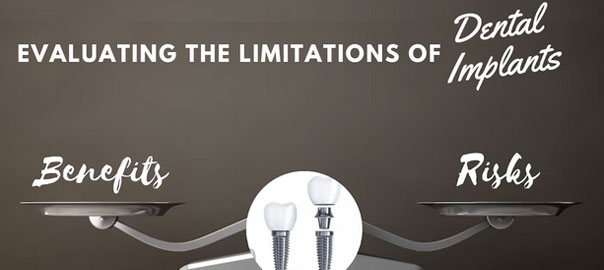
Balancing Benefits and Risks: Evaluating the Limitations of Dental Implants
Overview
A pleasant, beautiful smile has an immediate effect in ensuring confidence and a general feeling of well-being. Dental implants have now assumed a leading role in the field of restorative dentistry to replace a missing single tooth or several teeth. The popularity of dental implants in recent times is gaining favor because the treatment modality replaces missing teeth and restores both functionality and aesthetics.
However, like all medical procedures, you will need to know some of the risks versus the reward associated with dental implants. We will outline below some of the pros and some of the possible cons of dental implants in order to help you make an informed decision about your dental health.
Disadvantages and Complications of Dental Implants
- Affordability: Dental implants are very expensive. While the benefit of a procedure might be long-lasting, most people usually are deterred because of the huge upfront cost of the procedure. However, it always remains important to weigh in on good value that dental implants possess for the long term and improved quality of life.
- Timing: The procedures for implants take several visits to the dentist. Mostly, this is because spacing needs to be left between placing the implant and then placing the crown or prosthetic tooth. All in all, this takes a great deal of patience and commitment; however, the final result will be well worth it.
- The size and quality of the bone: This has to do with the fact that implantation requires the jawbone to be good in quantity and quality for the tooth to be well implanted. Where the density is not good, bone grafting might be required. Many times, even before the procedure for the implants can be undertaken, this complicates and raises the cost of treatment.
- Implant Failure: It is a very rare mode of failure, but poor oral hygiene, chronic diseases like diabetes, the habit of smoking, and some drugs can always put one into failure. Long-term success of implants requires frequent visits to the dentist and good oral hygiene practices.
Advantages of Dental Implants
- Restoring Functionality: It is similar to your natural teeth because one can eat, speak, and smile comfortably with implants. Unlike dentures these implants are fixed tightly into the jawbone for stability minimizing any chance of slippage or discomfort.
- More Aesthetic: By design, dental implants are made to look and perform just like natural teeth, that is, with them, much better off in terms of offering a good smile. They blend in with the rest of the teeth to provide an aspect of naturalness and harmony.
- Durability: Teeth implants can last a lifetime if well looked after.
Other dental restorations compromise the ability of your natural teeth, since they anchor onto the neighboring teeth for support, while a dental implant does not.
neighboring teeth for support, preserving the integrity of your natural teeth. - Bone Preservation: The lost tooth may weaken, with time, your jawbone that is underneath it. The stimulation from dental implants prevents bone loss and any distortion of facial features that may eventually occur.
- Convenience: There is no annoying adhesive or removing them for cleaning, as with dentures. In this respect, they will be secured and thus treated much like your natural teeth.
These dental implants revolutionized restorative dentistry in consideration that the sound and cosmetically acceptable restoration of the missing teeth came into existence. Therefore, the problems and risks arising from these procedures also have their limit, while the dental implant advantages outweigh the disadvantages in most of the patients’ cases.
You will need to consult a professional dentist who will be able to assess your condition and advise accordingly to suit your oral health needs.
Leave a Reply
Leave a Reply
Explore More Similar Posts
Explore More Blogs


Leave a Reply